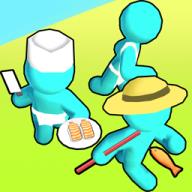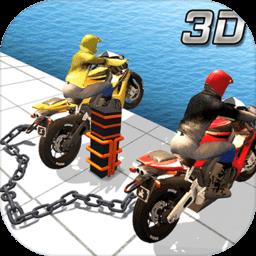仁爱七年级unit7 知识点(句型,语法)
Unit 7 The Birthday Party
Topic1 Can you dance?
一、词汇:
1. Happy Birthday!生日快乐!
2. take photos拍照
3. work out作出,解决
4. how about/what about如何,怎样
5. fly kites放风筝
6. row a boat划船
7. perform ballet ]表演芭蕾舞
8. dance the disco跳迪斯科
9. make model planes做飞机模型
10. draw pictures画画
11. show sb. sth.给某人看某物
12. two years ago两年前
13. be in hospital(生病)住院
二、句型:
1. What are you going to perform at Kangkang’s birthday party?你打算在康康的生日晚会上表演什么?
“be going to 动词原形”的句型常用来表示打算、准备做某事或即将发生或肯定要发生某事,be是助动词,有人称和数的变化,如:
He is going to have a swim this afternoon.
2. What about /How about 名词、代词或动名词,意为“……怎么样?”常用来表示对……的看法,或表示建议、询问的,如:
How/What about sitting here to look at the moon?坐在这儿赏月怎么样?
3. I only can sing English songs.我只会唱英文歌曲.(情态动词can的用法)
They couldn’t sing any English songs two years ago.两年前他们不会唱英文歌曲.
一段时间 ago:表示在……时间以前,如:three months ago三个月以前
4.What will you buy for Kangkang as a birthday present?你要给康康买什么礼物?
“will 动词原形”表将来.
5.I can play the guitar.
三、定冠词the 的用法
1) 定冠词特指某(些)人或某(些)事物, 以区别于同类中其他的人或事物.
The bag in the desk is mine. 桌子里的书包是我的.
Is this the book you are looking for? 这是你要找的书吗?
Do you know the man in back? 你知道穿黑色衣服的人是谁吗?
It is not the car we are looking for. 这不是我们要找的车.
The man has found his child. 那个人找到了他的孩子.
2) 定冠词用来指上文中已提到过的人或事物.
I bought a book from Xinhua book-shop. The book costs 15 yuan.
我从新华书店买了一本书. 这本书值十五元.
I saw a film yesterday.The film was ended at eight o'clock.
我昨天看了一场电影.电影八点钟结束的.
Lucy bought a radio yesterday, but she found something was wrong with the radio.
露西昨天买了一台收音机,但是她发现收音机有问题.
3) 定冠词用于表示世界上独一无二的事物或用于自然界现象或方位名词之前.
the sun the moon the earth the sky the world the sea
The sun is bigger than the moon. 太阳比月亮大.
I can see a bird in the sky. 我能看到天空中有一只小鸟.
I like to have a walk with the bright moon light in the evening. 我愿晚上在明亮的月光下散步.
4) 定冠词与单数名词连用,表示这一类人或物.
The dog is not too danger. 狗不太危险.
The cat is an animal. 猫是一种动物.
The umbrella in the shop is very cheap in this season. 这个季节商店里的雨伞很便宜.
5) 定冠词与某些形容词连用,使形容词名词化, 表示某一类人.
the poor, the rich, the wounded, the sick, the deaf.
The wounded were brought to the hospital. 受伤者被送到了医院.
He always helps the poor. 他经常帮助穷人.
The deaf can go to this special school. 耳聋者可以进这所特殊学校上学.
6) 用在序数词, 形容词最高级和表示方位的名词前.
This is the biggest city in China I have ever visited. 这是我在参观的最大的城市.
I saw a plane coming from the east. 我看见一架飞机从东方飞来.
He is the last one to help me. 他不会来帮助我的.
7) 定冠词用在演奏乐器的名称和文艺活动,运动场所的名称前.
The little girl likes to play the violin. 小女孩喜欢拉小提琴.
They are going to the cinema tonight. 他们今晚要去影院看电影.
The theater was on fire last week. 剧院昨天着火了.
8) 定冠词用在报刊,杂志的名称的名词之前.
I am reading the China Daily now. 我现在正读日报.
Have you got the Evening Paper yet? 你拿到晚报了吗?
The Times is a foreign newspaper. 泰晤士报是一家外国报纸.
The Peking Review is on the desk. 北京周报在桌子上放着.
9) 定冠词用在江河,海洋,山脉,群岛的名称之前.
We live near the Yellow River. 我们住在黄河边上.
The Changjiang River is the biggest one in China. 长江是最大的河.
The Himalayas is located in Tibet. 喜马拉雅山位于西藏.
10) 定冠词用在姓名复数之前,表示一家人.
The Greens is very kind to us. 格林一家人待我们很好.
The Whites like the classic music. 怀特一家喜欢古典音乐.
不用冠词的场合.
1) 专有名词,抽象名词和物质名词之前一般不用冠词.
China is a largest country in the world. 是世界上最大的国家.
I think water is a kind of food, too. 我认为水也是一种食物.
Cotton feels soft. 棉花摸起来柔软.
2) 表示日常餐食名词之前不用冠词,但如果指具体的饮食时用定冠词 the.
It's time for breakfast. 该吃早饭了.
What do you have for lunch? 你午饭吃点什么?
The dinner I had at that restaurant was expensive. 我在那家饭店吃的饭很贵.
3) 在季节,月份,星期,节日.球类运动,棋类游戏的名词之前不用冠词.
Summer is hot and winter is cold here. 这儿夏天热冬天冷.
New Year's Day is coming. 新年就要到啦.
Today is the first day of May. 今天是五月的第一天.
We are going to play basketball this afternoon. 今天下午我们要去打篮球.
We don't like bridge very much. 我们不太喜欢桥牌.
4)语言的名称前不用冠词.
Can you speak English? 你会讲英语吗?
It's difficult to learn Chinese well. 要学好中文很难.
Tom knows English but he doesn't know French. 汤姆懂英语但不懂法语.
5) 某些固定词组不用冠词.
by air, on foot, at night, after school, at home, go to class, in fact, from morning till night.
I'm going to Chicago by air next week. 下周我要乘飞机去芝加哥.
I go to school on foot . 我步行去学校上学.
In fact, I don't know him at all. 实际上,我一点也不认识他.
He is at home today. 他今天在家.
Topic2 When is your birthday?
一、词汇:
1.first of all首先
2.have a birthday party举行生日晚会(聚会)
3.have a special dinner吃一顿特殊的晚餐
4.forget to do sth.忘记去做某事
5.That’s a good idea!真是好主意!
6.make a cake做蛋糕
7.be born出生
8.the shape of ……的形状
9.I’m afraid…我恐怕,我担心……
二、 句型:
1. When is your birthday, Kangkang?康康,你的生日是什么时候?
May the eighteenth.五月十八日.
①“when”可以就年、月、日和钟点进行提问,而“what time”只能就钟点进行提问.
②英语中日期有几种表示方法:
a.把月份写在日期前面,这通常是美国写法.如:March 21st,2001 读作March the twenty-first, two thousand and one(2001年3月21日)
b.先写日子,再写月份和年,这通常是英国写法.如::21st March,2001读作the twenty-first of March, two thousand and one
2. ---I beg it’s going to be fun.我敢断定肯定有趣.---You bet.当然了.
3. What day is it today? It’s Friday.
询问星期用What day…? 回答用It……如:
What day is it today? It’s Wednesday. 或Today is Wednesday.
4. What’s the date today? It’s May 21st,2004.
询问日期用What’s the date…?如:What’s the date the day afternoon?
5. Tomorrow is your mom’s birthday.
名词所有格表示名词之间的所属关系.一般有两种表示,一种是在名词后加 's 构成,一种是用 of 所有格.
(1) 表示有生命的人或物的名词,在词尾加 's 来表示从属关系,如:
Mary’s school bag my sister’s cat
(2) 以 s 结尾的名词,表示所有格只在后面加’, 如:
the boys’ game the teachers’ chairs
(3) 由 and 连接两个或两个以上的单数名词,表示共有关系,这时只在最后一个名词后加 's ,如:
Tom and Mike’s sister
Jack and John’s room
Tom’s and Jack’s fathers
(4) 无生命东西的名词,一般都与 of 构成短语,表示所属关系, 如:
a map of China a picture of my school
6. How shall we celebrate it?我们要怎样庆祝呢?
Shall we have a special dinner?我们吃一顿特别的晚餐怎么样?
“Shall I…/Shall we…”用于示表示建议或征求意见,也可用“疑问词 shall I / we…”如:Shall we go swimming this afternoon?今天下午我们去游泳好吗?
What time shall we start?我们该什么时候出发?
7. Don’t forget to buy a birthday cake.别忘了买生日蛋糕.
forget的用法:
(1) 接名词或代词,如:
I forget his name.我忘了他的名字.
Don’t forget me.别忘了我.
(2)接不定式,意为“忘记要做某事”,如:
Please don’t forget to close the door when you leave.你离开时请别忘了关门.
(3)接动词ing形式,意为“忘记做过某事”,如:
I forget meeting you in Beijing.我忘了在北京见到过你.
8. Kangkang is going to be thirteen on May the eighteenth.
介词on ,in和at放在时间前的用法:
(1) on放在某一或某些确定或不确定的时间前,如某天(某些天),某天的上午,下午或晚上,如:
on August 18th,1980 在1980年8月18日
on Sunday 在星期天 on Saturday evening在星期六的晚上
on a cold day 在一个寒冷的日子 on Children’s Day在儿童节
(2) in表示在一段时间,多放在年、月、季节等时间前,如:
in summer在夏天 in July在七月 in the morning在早上
(3) at用在某一时刻、年纪、夜晚、中午等时间前,如:
at 8 o’clock在八点 at night在夜晚
at noon在中午 at the age of ten 在十岁时
9. When were you born?你什么时候出生?
I was born in June ,1970.我生于1970年6月.
10. Sorry, I’m afraid you can’t.
I’m afraid往往相当于I’m sorry, but…可用来引出带有歉意的句子,表求一种担忧,语气较缓和,如:I’m afraid I can’t come.(=I’m sorry, but I can’t come.)
四、序数词
表示数目顺序的词用序数词.
1) 序数词1━19 除第一,第二,第三,第五,第八,第九, 第十二变化不规则外, 其余均由在 基数词后加上 -th.
2) 十位整数的序数词的构成方法是, 是将十位整数基数词的词尾 -y 变成 i 再加 -eth.
3) 几十几的序数词,只是把个位数变成序数词, 十位数不变. 序数词的用法: 序数词主 要用作定语,表语.前面要加定冠词 the.
Topic3 We had a wonderful party.
一、 词汇:
1. lots of=a lot of 许多
2. tell a lie撒谎
3. in fact事实上,实际上
4. fall down跌倒
5. be funny有趣
6. have a good time玩得高兴,过得愉快
7. blow out 吹灭
8. not…at all一点也不,根本不
9. not …till/until直到……才
10. hurt oneself受伤
11. as well也
12. magic tricks魔术
13. rock songs摇滚歌曲
14. cross-talk相声
二、 句型:
1. He performed magic tricks.
一般过去时的句子构成.
(1) My mother didn’t go to work yesterday.
(2) Did you go to the zoo last Sunday? Yes, I did. /No, I didn’t .
2.I have a lot of work to do as well.我还有许多工作要做.
as well意为“除……之外,也,又”,只能放在句末作状语,与too的用法相同,可互换使用.as well as是连词,用来连接两个名词形容词等,如:
Lu Xun is a great writer, and a fearless fighter as well.鲁迅是个伟大的作家,也是个无畏的战士.
He gave the beggar food, as well as money.(=He gave the begger food , and money as well.)他除了给那个乞丐食物外,还给他钱.
3.You know I don’t like video games at all.
not…at all根本不,一点都不,at all多放在否定句末,加强否定语气,如:
My mother can’t ride a bike at all.
Thanks very much. Not at all.
4. Did the movie go on until midnight?电影一直演到午夜吗?
until用作介词,跟一个表示某一时间的名词,也可用作连词,引导一个时间状语从句.
①肯定句中,until只与持续性动词连用,意为“到……为止”.如:
We had to wait until he came back.我们只好等到他回来.
②until在否定句中,通常与瞬间性动词连用,构成“not……until”,意为“直到……才”,如:The children didn’t leave school until five o’clock.
③引导时间状语从句,用一般现在时代替一般将来时,如:
I won’t go until he comes back.我将等他回来再走.
三、动词的一般过去时态
I. 一般过去时的概念
一般过去时表示过去某个时间发生的动作或存在的状态.常和表示过去的时间状语连用.如:last year, yesterday等; 也可表示过去经常反复发生的动作,常和often, always等频率副词连用.
例如:①I saw him in the street yesterday. 昨天我在街上看见他了.
②Li Mei always went to school on foot last year. 去年李梅总是步行上学.
II. 一般过去时的构成
我们主要来学习谓语动词为实义动词的一般过去时的构成.
动词过去式的构成:
(1)规则动词过去式的构成有四条规则:
①一般在动词原形末尾直接加上-ed.如:look-looked.
②以不发音的字母e结尾的动词,去e再加-ed.如:live-lived.
③末尾只有一个辅音字母的重读闭音节,先双写这个辅音字母,再加-ed.如:stop-stopped.
④末尾是辅音字母 y结尾的动词,先变y为i,然后再加-ed.如:study-studied.
(2)不规则动词的过去式需特殊记忆.如:am(is)-was, are-were, go-went, come-came, take-took, have (has)-had等.
III. 一般过去时的几种句型
肯定句结构为:主语 动词的过去式 其它.如:He went to the toy store yesterday. 他昨天去玩具店了.
否定句结构为:主语 did not (didn't) 动词原形 其它.如:He didn't go to the toy store yesterday. 他昨天没去玩具店.
一般疑问句的构成:Did 主语+动词原形+其它?如:
1) --Did you go to Beijing last week? --Yes, we did. (No, we didn't.)
2) --Did you meet the businessman before? --No, I didn't. (Yes, I did.)
特殊疑问句的构成:
疑问词+did 主语+动词原形+其它?如:
1) --What did you do last night? --I did my homework.
2) --Where did you go last week? --I went to Shanghai with my parents.
一般过去时口诀:
一般过去时并不难,表示过去动作、状态记心间.
动词要用过去式,时间状语句末站.
否定句很简单,didn't 站在动词原形前,其它部分不要变.
一般疑问句也好变,did放在句子前,主语、动词原形、其它部分依次站.
特殊疑问句也简单,疑问词加一般疑问句记心间.
最后一条请注意,动词过去式要牢记.
顿时的近义词
近义词: 立刻 immediatelyadv. 立即,立刻;直接地conj. 一…就You should stop this dangerous climbing game immediately.你应该立刻停止这种危险的攀爬游戏。Let me know immediately you get to New York.你到了纽约后立刻通知我。The wounded must be taken to the hospital immediately.必须立即将伤员送往医院。We really ought to leave immediately.我们真的应该马上离开。
ERROR
The following error was encountered while trying to retrieve the URL:
初中英语主谓一致的用法 例句等等~
用作主语的名词词组中心词和谓语动词在单、复数形式上的一致,就是语法一致.也就是说,如果名词中心词是单数,动词用单数形式;如果名词中心词是复数,动词用复数形式.例如:
This table is a genuine antique.
Both parties have their own advantages.
Her job has something to do with computers.
She wants to go home.
They are divorcing each other.
Mary was watching herself in the mirror.
The bird built a nest.
Susan comes home every week-end.
(二) 编辑本段 回目录 主谓一致 - 意义一致原则
有时,主语和谓语动词的一致关系取决于主语的单、复数意义,而不是语法上的单、复数形式,这样的一致关系就是意义一致.例如:
Democratic government gradually take the place of an all-powerful monarchy.
A barracks was attacked by the guerilla.
Mumps is a kind of infectious disease.
The United States is a developed country.
It is the remains of a ruined palace.
The archives was lost.
This pair of trousers costs fifty dollars.
(三) 编辑本段 回目录 主谓一致 - 就近原则
有时,谓语动词的单、复数形式决定于最靠近它的词语.
例如:
Either my grandsons or their father is coming.
No one except his daughters agree with him.
Mary and her sisters are baking a cake.
Neither Richard nor I am going.
编辑本段 回目录 主谓一致 - 以集合名词做主语的主谓一致问题
有些集合名词,ommittee,council,crew,crowd,family,gang,government,group,mob,staff,team, union等,在意义上是复数,但在语法形式上是单数,这类名词作主语的主谓一致问题往往遵循“语法一致”或“意义一致”原则.例如:
The committee has/have decided to dismiss him.
A council of elders governs the tribe.
The present government is trying to control inflation.
The school staff are expected to supervise school meals.
(一)通常作复数的集体名词
包括police,people, cattle, militia, vermin等,这些集体名词通常用作复数.
例如:
The British police have only very limited powers.
The militia were called out to guard the borderland.
It seems the cattle on the sides of the dikes were the only living creatures in these desolate surroundings.
(二)通常作不可数名词的集体名词
通常作不可数名词的集体名词,包括poultry,foliage,machinery, equipment,furniture,
merchandise等,这类名词后的动词用单数形式.
例如:
Poultry is expensive at this time of year.
That green foliage was restful.
The merchandise has arrived undamaged.
All the machinery in the factory is made in China.
The suite of furniture he bought was of contemporary style.
The equipment of the photographic studio was expensive.
(三)可作单数也可作复数的集体名词
可作单数也可作复数的集体名词,包括audience, committee, crew, family, government,jury等.
例如:
The audience was/were enthusiastic on the opening night of the play.
The committee has/have decided to dismiss him.
The jury is/are about to announce the winners.
The government has/have discussed the matter for a long time.
三、a committee, etc of 复数名词的主谓一致问题
如果主语是由a committee of /a panel of /a (the) board of 复数名词构成,随后的动词通常用单数.
例如:
A committee of twelve men is to discuss the matter.
A panel of experts has considered the situation.
The board of managers is responsible for the firm.
四、以-s结尾的名词作主语的主谓一致问题
英语可数名词的规则复数形式是在词尾加-s或-es,但是有一些以-s结尾的名词并不是可数名词.它们用法多样,造成了实际使用上的困难,以下详述了以-s结尾的名词作主语的主谓一致问题.
(一)以-s结尾的疾病名称作主语的主谓一致问题
(二)以-s结尾的游戏名称作主语的主谓一致问题
(三)以-s结尾的地理名称作主语的主谓一致问题
(四)以-ics结尾的学科名称作主语的主谓一致问题
(五)其它以-s结尾的名词的主谓一致问题
(一)以-s结尾的疾病名称作主语的主谓一致问题
以-s结尾的疾病名称作主语的主谓一致问题,如:arthritis,bronchitis,diabetes,mumps,phlebitis,rickets,这类以-s结尾的疾病名称作主语时,谓语动词通常用作单数.
例如:
Arthritis causes great pain in the joints of the patient.
The diabetes is a kind of chronic disease.
Measles usually occurs in children.
Phlebitis is a swollen condition of the blood vessels.
(二)以-s结尾的游戏名称作主语的主谓一致问题
以-s结尾的游戏名称作主语时,谓语动词通常用作单数.
例如:
Darts is basically a easy game.
Marbles is not confined to children.
Skittles is not fashionable nowadays.
Draughts is not very difficult to learn.
但当Darts,Marbles等的意义为游戏器具而非游戏名称时,谓语动词通常用作复数.
例如:
Three darts are thrown at each turn.
All nine skittles were brought down by the good throw.
(三)以-s结尾的地理名称作主语的主谓一致问题
某些以-s结尾的地理名称,如果是国名,如the United States,the Netherlands等,因其是单一政治实体,所以谓语动词用作单数.
例如:
The United States was hit by the Great Depression in 1930s'.
In early January 1996 the Netherlands was hit by its worst storm since 1976.
但如果是群岛、山脉、海峡、瀑布等地理名称作主语,谓语动词用作复数.
例如:
The West Indies are commonly divided into two parts.
The Himalayas have a magnificent variety of plant.
The Straits of Gibraltar have not lost their strategic importance.
The Niagara Falls are perhaps the most splendid waterfall in the world.
(四)以-ics结尾的学科名称作主语的主谓一致问题
某些以-ics结尾的学科名称作主语时,如physics,mathematics,mechanics, optics, acoustics, politics statistics, economics, linguistics, athletics等, 谓语动词通常用作单数.
例如:
Physics is a fundamental subject in science.
The third world economics is promising.
Acoustics studies the science of sound.
Mathematics is an interesting subject.
Athletics is a required course for students of all grades.
但如果这类名词表示学科以外的其它含义,可作复数用.
例如:
Athletics have been greatly encouraged at this college.
The acoustics of the new concert hall are perfect.
The economics of the project are still at issue.
(五)其它以-s结尾的名词的主谓一致问题
A.以-s结尾的由两部分组成的物体名称作主语
英语中有一些通常以-s结尾的由两部分组成的物体名词,如glasses, pincers,pliers,scissors, shorts,suspenders,trousers等,这类名词做主语,如果不带“一把”、“一副”等单位词,谓语动词通常用复数.
例如:
Mary's glasses are new.
John's trousers are black.
如果带有单位词, 则由单位词决定动词的单、复数形式.
例如:
One pair of pincers isn't enough.
Two pairs of scissors are missing from my tool box.
B.其他以-s结尾的名词
英语中还有一些以- s结尾的名词,如archives,arms,clothes, contents, eaves, fireworks, goods, minutes, morals, remains stairs, suburbs, thanks,wages这类名词作主语时,谓语动词通常用复数.
例如:
The archives of the country are kept in the Department of Security.
The contents of the book are most amusing.
High wages often result in high prices.
My thanks are sincere.
五、如果句子的主语是并列结构,其主谓一致问题通常遵循以下原则:
(一)由and/both...and连接的并列主语的主谓一致问题
(二)由or/nor/either...or连接的并列主语的主谓一致问题
(三)主语 as much as,etc的主谓一致问题
(一)由and/both...and连接的并列主语的主谓一致问题
由and/both...and连接的并列结构作主语,可根据主语的意义决定谓语动词的单、复数形式.
例如:
Pancakes and syrup is a tasty breakfast.
The number and diversity of British newspaper is considerable.
Good and bad taste are inculcated by example.
Fish and chips are getting very expensive.
A truck and a car were in the ditch.
Both Cathy and her daughter Lida have gone fishing in Canada.
当and连接的并列名词词组带有each,every,或者many a 等限定词时,谓语动词通常用单数.
例如:
Each man and each woman there is asked to help.
Every flower and every bush is to be cut down.
Every change of season, every change of weather, indeed every hour of the day, produces some change in the magical hues and shapes of these mountains.
Many a boy was disappointed after seeing the film.
(二)由or/nor/either...or连接的并列主语的主谓一致问题
由or,nor,either...or, neither...nor,not only...but also连接的并列结构作主语,随后的动词形式通常按照“就近原则”处理.
例如:
Neither Lucy nor Carol has any money left.
Neither sleet nor snow stops him from driving his new Mercedes-Benz.
Either Tina or Carol is sure to know the answer.
Neither my father nor my brothers are likely to be at theater.
Neither the Kansas coach nor the players were confident of victory.
Not only one, but all of us are hoping to be there.
Not only the switches but also the old wiring has been stolen.
(三)主语 as much as,etc的主谓一致问题
当主语后面跟有由as much as, rather than , more than, no less than 等引导的从属结构,或跟有由as well as, in addition to ,with, along with, together with, except等引导的词组时, 其后的动词形式取决主语的形式.
例如:
The vessel, with its entire crew and cargo was lost.
The ocean, as well as the gulf and the bay, provides good fishing.
John, rather than his roommates, is to blame.
Hugh,as well as his two sisters, is vacationing in Wyoming this summer.
Some of the employees as much as the manager were responsible for the failure.
My husband,more than anyone else in the family, is longing to go there again.
Billy, together with his sisters, was wounded in the accident.
No one except two girls was late for school.
六、以表示数量概念的名词词组作主语的主谓一致问题
数量概念分两类:一类是确定数量,如 two years, five seconds,three kilos,等,另一类是非确定数量,如all of..., some of..., none of.如果用这类表示数量概念的名词词组作主语,会产生主谓一致问题.
(一)以表示确定数量的名词词组作主语的主谓一致问题
(二)以表示非确定数量的名词词组作主语的主谓一致问题
(一)以表示确定数量的名词词组作主语
当主语为表示确定数量的名词词组时,如果数量概念被看做一个整体,动词用单数,如果被看做组成该数量的个体,动词用复数.
例如:
The treasurer considered that twenty dollars was not too much to ask.
"Two months is too short a time," General manager warned, "we must hurry up."
Three weeks is needed to complete the task.
There were six silver dollars in each of the stockings.
Three pints is not enough to get him drunk.
A total of 50,000 new bicycles was registered in the year.
如果作主语的名词词组是由“分数/百分数 of”词组构成,其动词形式 取决于of词组中名词的类别.
例如:
Two-thirds of the people present is against the plan.
Three-fourths of the surface of the earth is covered by sea.
Over twenty percent of the city was destroyed in the war.
Forty-five percent of the doctors were woman.
两数相减或相除,谓语动词用单数;两数相加或相乘,谓语动词可用单数,也可用复数.
例如:
Sixty minus seventeen leaves forty-three.
Forty-two divided by six is seven.
Six and eight makes/make fourteen.
Six times eight is/are forty-eight.
如果主语由"one in/one out of 复数名词" 构成,在正式语体中,动词用单数.
例如:
One in ten students has passed the examination.
One out of twelve bottles was left intact.
(二)以表示非确定数量的名词词组作主语的主谓一致问题
如果主语由 "a portion of, a series of, a pile of, a panel of 名词"或由“a kind/sort/type of, this kind/sort/type of 名词” 构成,谓语动词通常用单数.
例如:
A panel of us has decided to hire a boat and travel through Holland by canal.
A pile of apple logs was set beside the hearth.
A portion of reports is deceiving.
This kind of cars is rather expensive.
This type of women is dangerous.
That type of machines is up-to-date.
如果主语是由“many a 名词" 或“more than one 名词"构成,随后的动词遵循“语法一致”原则,用单数.
例如:
Many a person in these circumstances has hoped for a long break.
Many a man has his own responsibility.
More than one student has failed the exam.
More than one ship was lost this year.
如果主语是all of, some of,none of, half of, most of,lots of,loads of ,plenty of,等表示非确定数量的名词词组,谓语动词的单、复数形式根据 of词组中名词类别而定.
例如:
Most of the money was recovered by Deputy Player.
All of the cargo was lost.
Some of the books were badly torn.
None of my friends ever come to see me.
Half of the building was destroied during the war.
Half of the students are eager to leave now.
Lots of people are waiting outside.
Loads of apples have been distributed among the children.
Plenty of water was prepared for irrigation.

















